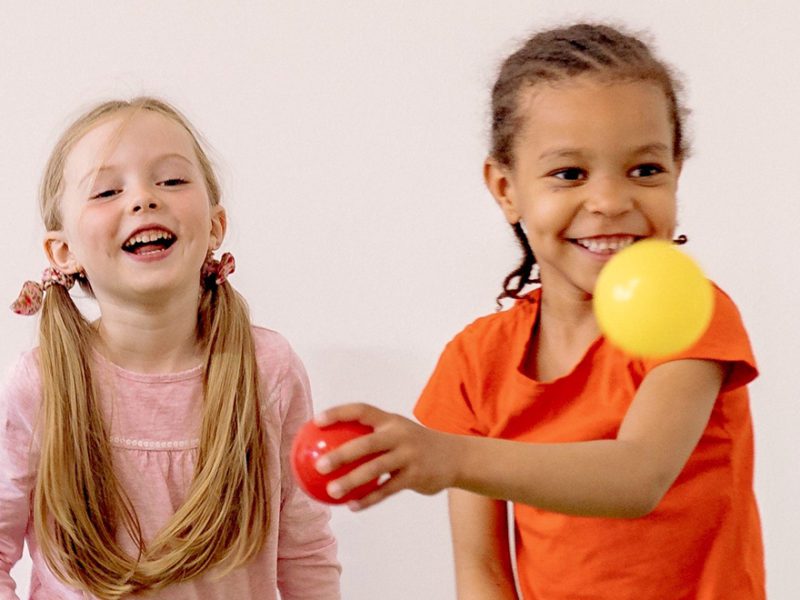It’s no secret that kids love games. If we’re honest, adults do too, right? Whether it’s in our normal kids ministry activities, a special kid min event, or Recreation Rotation at VBS, the games we play can (and should) be a strategic part of our ministry.
You may have heard a version of this: Playtime is a child’s classroom. It’s true. Any game or active activity we use can be more than just a distraction or a way to release some energy, game time can be teaching time. For many kids, times of play help them feel emotionally safe, and when children feel safe, they will be more open to teaching moments.
Here are 3 tips to using games as a path to learning.
1. Be aware!
Be aware of how games impact kids. It’s more than just fun and games. (That’s important, too!) The first tip is just to remember and be aware that kids in our ministries may not be emotionally and mentally open to hear the message of truth that we have to share when they arrive. Games can help get them ready. The old saying may be true: Knowing is half the battle. Or in this case, maybe it’s a third of the battle. 😉
2. Be intentional!
Once we have it in our minds that the games we use can be strategic in helping kids get ready to learn, the next tip is to be intentional. Let’s actually start seeing our games as part of our strategy and using them that way. Here are a few ways to be intentional:
– Start your session with a game. This practice goes a long way at the very beginning to help the emotional barriers kids may have and the anxiety kids may feel when they enter into our ministries to begin to feel emotionally safe.
– Play a game then, in no more than 1-2 sentences, tease the main point of the day.
– When games are used in the middle of a session, utilize the moments of transition to ask questions as a review from the Bible story or as life application or recite a memory verse.
– If you have a memory verse you group is working on, prompt kids to recite it before, during, or after playing a game.
– During VBS, use the weekly motto as call and response.
– Play music during a game that has spiritual relevance to your session. Bonus points, if it can be a memory verse song or a song that has a direct connection to the spiritual content of your session.
– Games help us build relationships with the kids, and relationships help kids feel safe. Use game time to get to know more about the kids in your ministry. For example, favorite color, sport, food, etc. Then, and this is big, remember those favorite things so you can talk about them at a later point or use some of those things as class prizes or gifts.
– Pray with kids, when appropriate.
3. Be ready!
After being aware and intentional, finally, be ready. If we\’re already being intentional, what are we ready for? For opportunities to talk about the good news of Jesus\’ forgiveness.
Being ready helps you to be sensitive to the movement of the Holy Spirit among your kids. As we partner with Him to share the love of Jesus, our own hearts are now primed for gospel opportunities, through sharing an applicable and appropriate part of your own testimony of your faith journey or connecting a game to the gospel: God’s plan for me.
Bonus tip: VBS Recreation Rotation
Use these tips to make your recreation rotation a strategic part of VBS. Resist the temptation to hand a high school student some rec game cards and say “Go play some games with the kids.” Invest in and disciple your rec leaders to be a valuable member of your team and to see how they play a strategic part of sharing the good news of Jesus’ forgiveness with the kids at your VBS.
Let’s do more with our game time than just play because, even if our kids don\’t realize it, games are so much more!
How have you used games to be a strategic path to learning in your ministry?
Jeremy Carroll is the Lifeway Kids Ministry Publishing Manager for VBS and Discipleship resources. Before coming to Lifeway, he has been active in local church ministry for nearly 20 years in TN, TX, and AL. Jeremy earned a Master of Arts in Christian Education from Southwestern Baptist Theological Seminary. A Middle Tennessee native, he and his family live in Murfreesboro, TN.


 Dealing with Insecurity
Dealing with Insecurity »
»